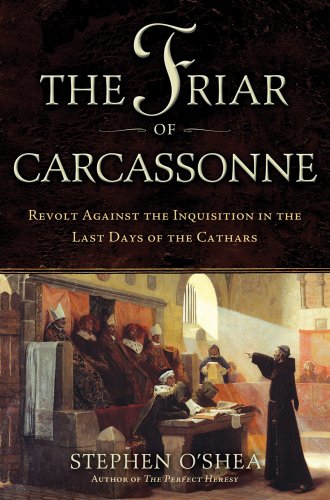The Friar of Carcassonne
Our modern sensibilities are frequently so offended by the attitudes of previous centuries that we minimize the importance of standing firm against corruption and cruelty in our own time. There are many historical individuals whose bravery in holding true to their convictions, no matter the cost, should be held up as examples for us to follow. One such man was Bernard Délicieux, a Franciscan friar who fought against the inquisition and torture of Cathars (“The Inquisition” still lay in the future), in Languedoc, in southern France. Délicieux challenged both the state and the church for nearly twenty years until, in 1317, he was arrested and eventually brought to trial. Pope John XXII feared that the popular friar would become a martyr, so he took care that Délicieux’ trial be legitimate and public. A detailed transcript of the trial was recorded, which led to the “delicious” irony that the friar’s battle against injustice is still heard seven centuries later.
O’Shea has the brilliant ability to make the complex seem simple. In a scant two hundred pages (followed by another fifty of fascinating notes) he succeeds in untangling many of the political, religious, and societal threads that affected the lives of so many within the walls of the medieval fortress city of Carcassonne. These seemingly disparate strands include the relatively innocuous Roman judicial roots of inquisition, the histories of the Dominicans and Franciscans, the struggle for power between the monarchy and the papacy, and the humiliation of Philip the Fair by the Flemish burghers at the Battle of the Golden Spurs.
Jean-Paul Laurens’ famous painting of Délicieux’ trial, L’Agitateur du Languedoc, graces the cover. After reading this biography it seems appropriate to ponder whether the friar may be pointing his finger of accusation not only at his contemporaries – but at us all.










